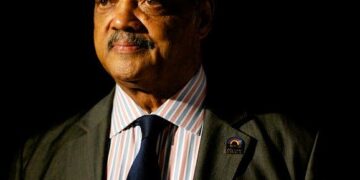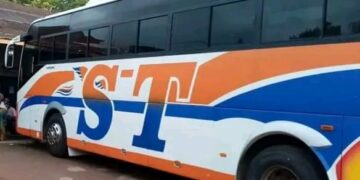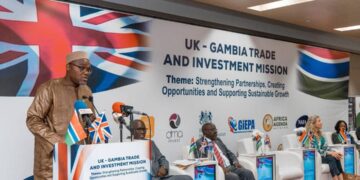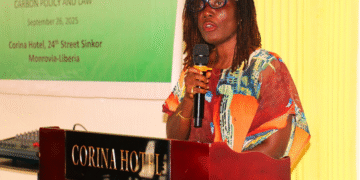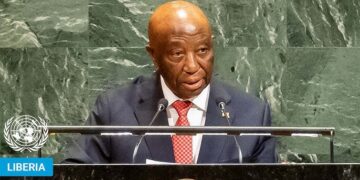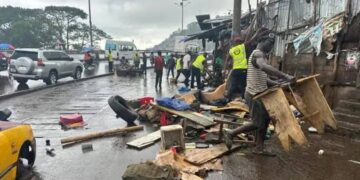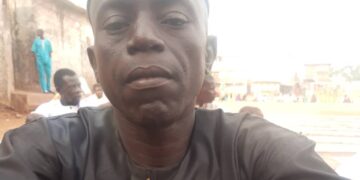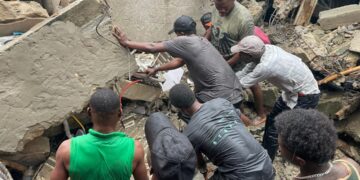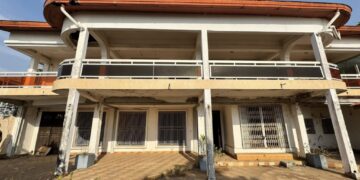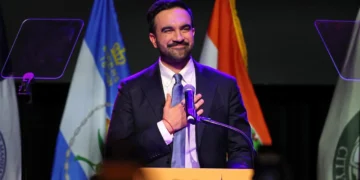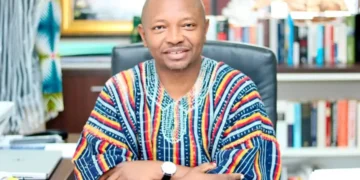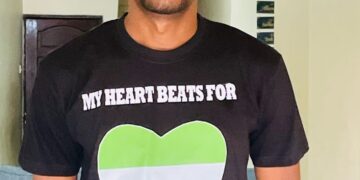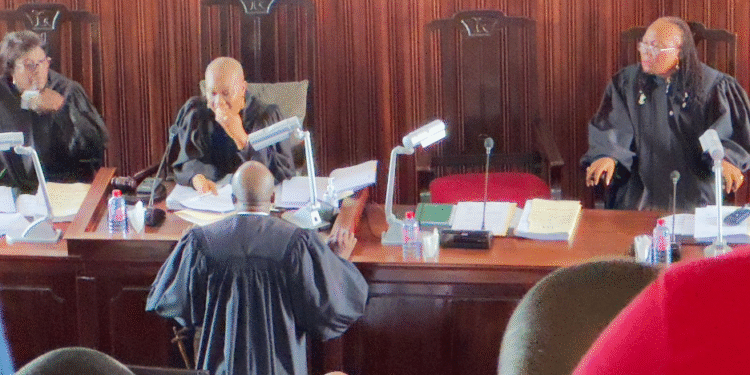A Liberian Supreme Court decision declares the legislative defection group that ousted House Speaker Koffa unconstitutional, ruling in favor of the embattled speaker.
Breakaway legislators ousted the speaker of the House and operated a parallel leadership structure after months of legislative proceedings were nullified by a Supreme Court on April 22, 2025. The Supreme Court’s decision brings temporary legal closure to a prolonged constitutional and political crisis that has paralyzed Liberia’s legislative processes at the House of Representatives since October 2024.
Chief Justice Sie-A-Nyene G. Yuoh, delivering the opinion of the court joined by four other justices of the Supreme Court bench, ruled unequivocally in favor of Speaker Koffa. The court emphasized that any action or session conducted by the so-called “Majority Bloc” in exclusion of Speaker Koffa, while he remains lawfully in office, was unconstitutional and carried no legal weight. However, there was one dissenting view among the four judges.
The judgment cited violations of Articles 33 and 49 of the Liberian Constitution, which govern the functioning of the House and the process for electing and removing its leadership. According to the court, the procedures adopted by the majority bloc to remove Koffa failed to meet the constitutional threshold.”
Cllr. Arthur Johnson, one of the lawyers representing Speaker Koffa, welcomed the court’s decision in an interview with local media in Monrovia. “I feel happy today that we are on the path of the rule of law,” he said. “As a student of history, political science, and law, I am always alarmed when those entrusted with protecting the Constitution choose instead to undermine it.”
Johnson also addressed the implications of the court’s decision on the recently passed 2025 national budget by the majority bloc, stating that such actions are “unconstitutional” and must be revisited. “Whatever that is not done legally is not done at all,” he added.
The controversy erupted in 2024 when 47 lawmakers, claiming to represent the majority of the 73-member House, signed a resolution removing Speaker Koffa. Citing alleged corruption, conflict of interest, and poor leadership, the bloc proceeded to install a new Speaker, Representative Richard N. Koon and Deputy Speaker Thomas Fallah.
Koffa, a lawyer and Grand Kru County representative from the opposition Coalition for Democratic Change (CDC), refused to accept his removal, denouncing it as illegal and unconstitutional. He maintained that the majority bloc had not met the constitutional requirement of a two-thirds vote; equivalent to 49 members for removing a speaker.
Article 49 of the Liberian Constitution mandates that the Speaker and Deputy Speaker can only be removed “for cause” by a resolution supported by two-thirds of House members.
Instead of stepping down, Koffa continued to preside over House sessions with 37 lawmakers aligned with him, branding their group the “Rule of Law Bloc.” The majority bloc, meanwhile, held its own parallel sessions in the joint chambers of the Capitol Building, refusing to recognize Koffa’s authority.
Amid the heightened standoff, Liberia woke up on December 18, 2024, to the news that the joint chambers where the majority bloc was holding their alternative sessions had been set ablaze. Investigations by Liberian authorities, supported by U.S.-based Fire Rescue Alliance experts, confirmed the fire was an act of arson, with damages estimated at $1.8 million.
Speaker Koffa and two allied lawmakers were questioned by police but denied any involvement. Several suspects were arrested, and although some were released later, no individual or group has taken responsibility for the fire.
ECOWAS’ Failed Mediation Efforts
The crisis also drew regional attention. A delegation from the Economic Community of West African States (ECOWAS) visited Liberia in March 2025 in an attempt to mediate. While ECOWAS called on all parties to uphold the Constitution and respect the rule of law, their efforts yielded no tangible outcome.
“The ECOWAS mission was well-intentioned, but both sides remained entrenched,” said one diplomat familiar with the mediation.
Following the ECOWAS failure, Koffa’s legal team filed a Bill of Information with the Supreme Court, urging it to enforce its December 2024 judgment, which had earlier cautioned the majority bloc against operating outside constitutional norms.
The petition specifically asked the court to invalidate all actions taken by the parallel leadership under Representative Koon and Deputy Speaker Fallah, including the passage of the national budget.
What Happens Next? Uncertain Future for Liberia’s House
Despite the Supreme Court’s ruling, significant uncertainty remains over whether the divided factions of the House will reconcile and resume joint legislative activities.
Analysts warn that the court ruling may not immediately heal the rift. “This judgment is a legal victory for Koffa, but the political fight is far from over,” said a political commentator. “What we are seeing is not just a leadership struggle but a deeper crisis of political legitimacy and trust.”
Both the Rule of Law Bloc and the Majority Bloc have shown little inclination to compromise. With Liberia’s political climate still recovering from the aftermath of a contentious 2023 general election that brought the Unity Party back to power, this crisis presents a serious governance challenge.
As the legislature remains paralyzed, ordinary Liberians continue to bear the brunt, awaiting policy decisions, budget implementation, and crucial public services that depend on legislative action.
For now, all eyes remain on whether Speaker Koffa can leverage the Supreme Court’s decision to restore order in the House or whether Liberia is headed for a deeper constitutional crisis.
At Wednesday’s Supreme Court hearing, the grounds of the temple of justice saw a huge police presence. Riot Police officers were seen carrying proactive shields and posted in readiness.
However, there were no violent incidents recorded on the grounds of the Temple of justice. Scores of supporters of both blocs were seen on the grounds just before the court handed down its ruling. Everyone was peaceful.
The embattled speaker, Fonati Koffa, in a video address on Wednesday evening after the court’s ruling, promised to reach out to two key heads of the majority bloc, Deputy Speaker Thomas Fallah, and Representative Richard Koon, for the establishment of what he calls a joint reconciliation meeting committee.
“I will reach out to Deputy Speaker Thomas Fallah and Hon. Richard Koon so that we establish a joint reconciliation and transitional committee,” Koffa said.
He then registered that such reconciliation would require him to make the sacrifice, although he did not say he intended to go about doing it. “I am not unmindful that reconciliation and progress may require that I make the ultimate sacrifice, and I am not unwilling to pay that price, but please let us show this nation how democracies are built.”
Former Liberian President George Weah said, “The ruling is not merely a legal decision; it is a crucial affirmation of the rule of law and the constitutional order that underpins our democracy. Any attempt to undermine or ignore the ruling could plunge Liberia into a constitutional crisis, threatening the country’s fragile peace and democratic gains.”

